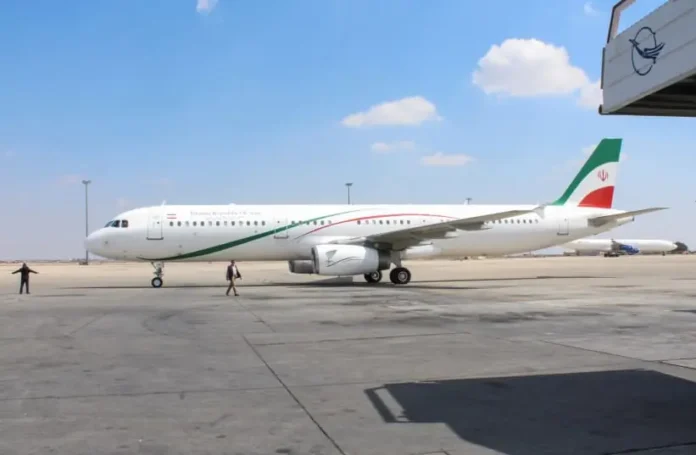In a startling aviation incident that has raised international concern, two Airbus A340 aircraft leased by Gambian company Macka Invest mysteriously disappeared from Lithuania, only to reappear in Iran under circumstances shrouded in secrecy.
The planes, originally destined for flights to Sri Lanka and the Philippines, vanished from radar upon entering Iranian airspace after their transponders were deactivated.
According to reports from Lithuanian sources, one aircraft was tracked landing at Mehrabad airport in Tehran, while the other touched down at Konarak airport in Chabahar.
The incident was first brought to light by the Lithuanian business news website vz. Lt highlights a pattern of similar occurrences involving Iranian entities.
Previously, in December 2022, four commercial Airbus A340 planes flying from Johannesburg to Uzbekistan similarly had their transponders disabled and were diverted to Iran, evading American sanctions imposed on Iran’s aviation sector.
Critics have pointed out that these actions allow Iranian aviation companies, such as Mahan Air, to acquire modern aircraft despite stringent economic sanctions that prevent the country from purchasing new planes outright.
The Airbus A340, each valued at over $150 million, represents a significant asset acquisition for Iran, which reportedly requires a fleet of at least 550 aircraft to meet domestic and international travel demands.
Šiauliai Airport director Aurelija Kuezada expressed concerns over the situation, indicating that a third aircraft was grounded to prevent potential diversion to Iran after suspicions were raised following the first two incidents.
“The safety and security implications of such actions are profound,” commented aviation industry experts, emphasizing the importance of transparency and adherence to international aviation regulations.
The International Civil Aviation Organization (ICAO) mandates that aircraft maintain active transponders for identification and safety purposes, ensuring air traffic control can monitor their movements.
The whereabouts and operational status of the Airbus A340s, now reportedly in Iranian possession, remain unclear. Questions regarding how these planes bypassed international monitoring systems and reached Iran without detection continue to fuel speculation and diplomatic scrutiny.
As the global aviation community grapples with the implications of these incidents, governments, and regulatory bodies are expected to intensify efforts to prevent future circumventions of sanctions and ensure compliance with international aviation standards.
The incident underscores broader geopolitical tensions surrounding Iran’s nuclear program and its implications for international security and trade.
In response to inquiries, Iranian officials have not provided official statements regarding the acquisition of the aircraft.
Meanwhile, international observers and stakeholders await further developments amid calls for transparency and accountability in global aviation operations.
The incident serves as a stark reminder of the challenges posed by sanctions enforcement and the complexities of international air travel regulation in an increasingly interconnected world.
This article was created using automation technology and was thoroughly edited and fact-checked by one of our editorial staff members

